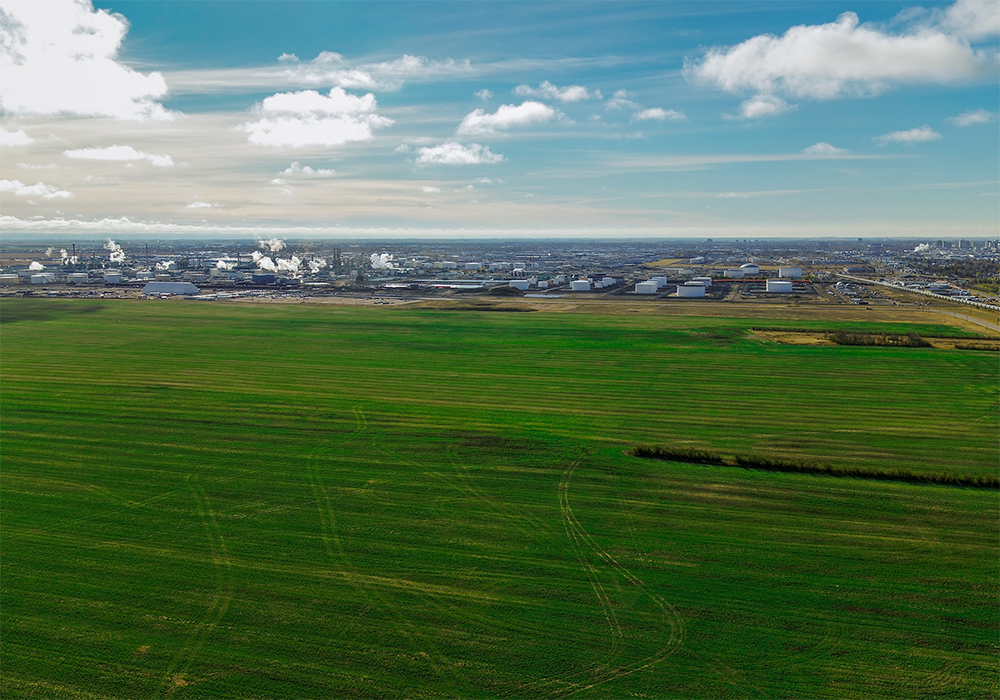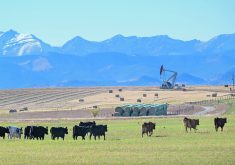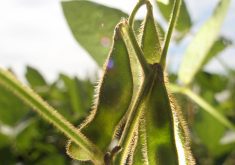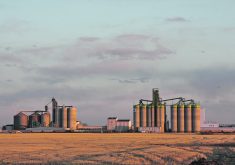Federated Co-operatives Limited and AGT Food and Ingredients are building a $360 million canola crush facility in Regina, the third major crush project announced for that city in less than a year.
The project will be part of a broader $2 billion integrated agriculture complex investment by FCL that includes construction of a renewable diesel plant capable of producing 15,000 barrels per day of the fuel.
The co-op announced the renewable diesel project in November 2021.
Related story: Federated secures land in Regina for renewable diesel project
The new component is the crush plant and it represents FCL’s first foray into that side of the agriculture business.
“I’m very pleased today to announce a historic investment for co-op, for the province of Saskatchewan and for western Canadian producers,” said FCL chief executive officer Scott Banda.
“We look forward to providing producers with another marketing opportunity for their canola crops.”
The crush plant will be 51 percent owned by FCL and 49 percent owned by AGT. It will be capable of processing 1.1 million tonnes of canola seed and producing 450,000 tonnes of oil annually.
It will produce enough oil to meet half of the needs of the renewable diesel plant. Banda said FCL wanted the flexibility to explore other feedstock options, such as animal tallow, for the other half of the plant’s requirements.
“We need to assess all of that going forward,” he said.
The renewable diesel plant should be operational by 2027. The crush plant will be up and running before that. Specific timelines for the crush plant will be announced at a groundbreaking event in the spring.
AGT president Murad Al-Katib said it will be a “seed-to-tank” integrated project that will improve Canada’s carbon footprint.
“The fields of Western Canada’s farmers are akin to the oil fields of oil-producing nations but our fields renew annually with each new crop,” he said.
Reporters questioned whether the project would reignite the old food-versus-fuel debate.
“We think that we can achieve both,” said Al-Katib.
The crush plant will be extracting canola protein and mixing it with pulse protein to create a more digestible and complete protein for human diets.
The mixture will also be used to produce an aquaculture feed that will be used in salmon, tilapia and shrimp diets. Al-Katib said the result will be more food production, not less.
“We gain on the food side and we gain on the fuel side,” he said.
Both companies stressed that they have aligned values.
“On a personal note, FCL is a company that I have admired for some time,” said Al-Katib.
His family’s local co-op number was eight when he was growing up in Davidson, Sask.
“I now view FCL as a company that I would emulate as a model of success,” he said.
AGT will focus on grain origination, operating the crush plant, logistics and transportation and sale of the meal and the other value-added products.
AGT owns the largest short-line rail network in Canada and will use that network to expand the canola origination area beyond the Regina plains into west-central Saskatchewan.
That may come in handy because there is going to be stiff competition for the crop in the Regina area.
Viterra is building the world’s largest integrated canola crush facility in the city that is supposed to be operational by late 2024. It will be capable of crushing 2.5 million tonnes of seed annually.
Cargill is also building a crush plant in Regina. It will have the capacity to process one million tonnes of the oilseed annually when it opens for business in 2024.
Saskatchewan has established a goal of crushing 75 percent of the province’s canola by 2030. Premier Scott Moe said they are now on target to exceed that target far earlier than anticipated.
The project will create 2,750 construction jobs and another 300 full-time jobs in the province once completed.
“This is a big win for the Saskatchewan economy,” said Moe.
There is now more than $12 billion committed to new capital projects in the province in the coming years.
Moe said FCL’s integrated agriculture complex will contribute to the province’s target of increasing value-added revenue to $10 billion annually by 2030, up from $5.6 billion in 2019.
Banda acknowledged that the soaring demand for renewable fuels is cannibalizing sales from the co-operative’s existing Regina refinery.
“We are seeing that decline at our refinery. We have not been running at full capacity there for some time and we have to transition,” he said.
Banda said government regulations like Canada’s proposed Clean Fuel Standard are helping companies like FCL make these types of investment decisions but the co-operative is also responding to growing consumer demand for renewable fuels.
“It’s the right thing to do long-term for our economy and for humanity,” he said.
Contact sean.pratt@producer.com
















